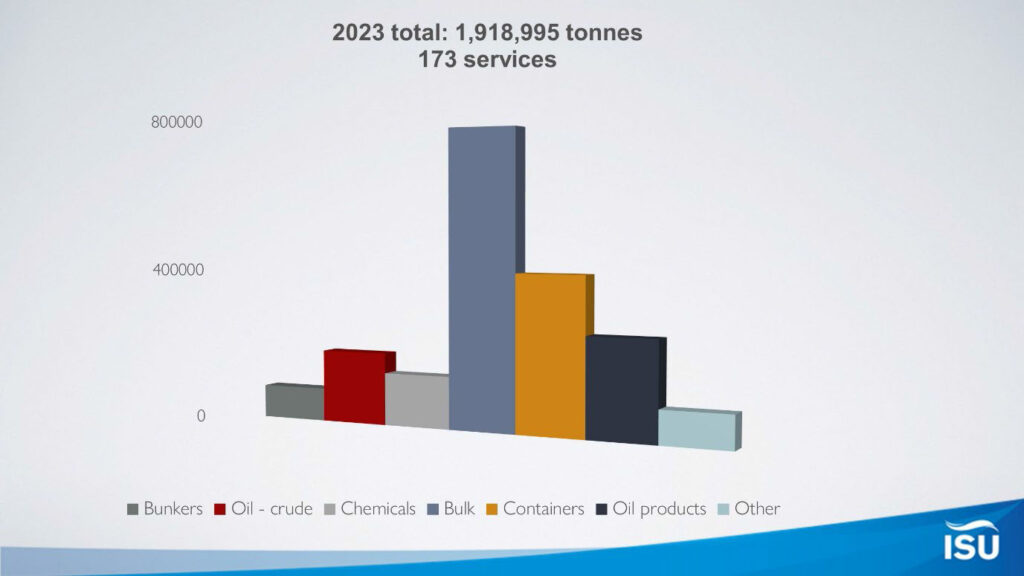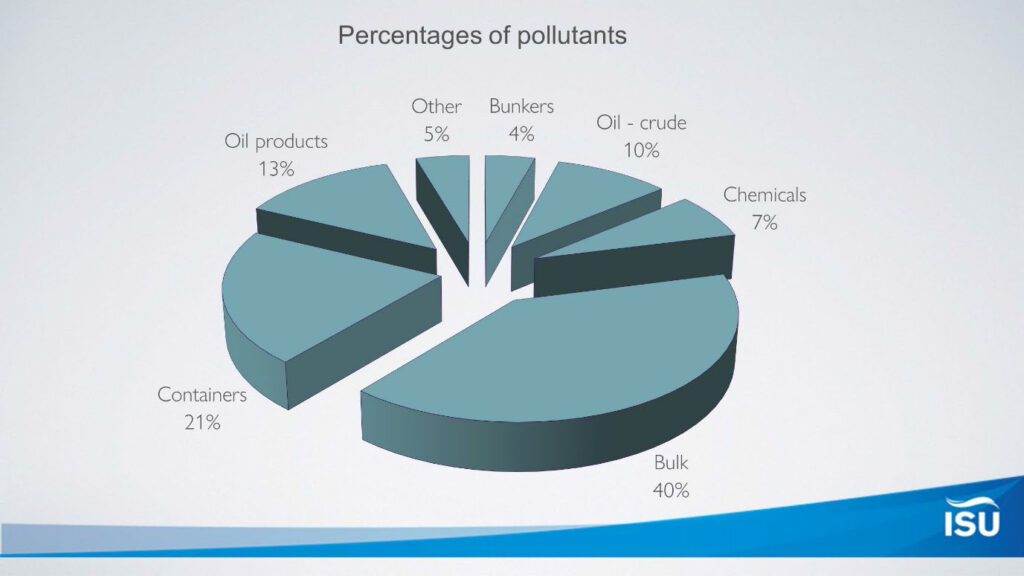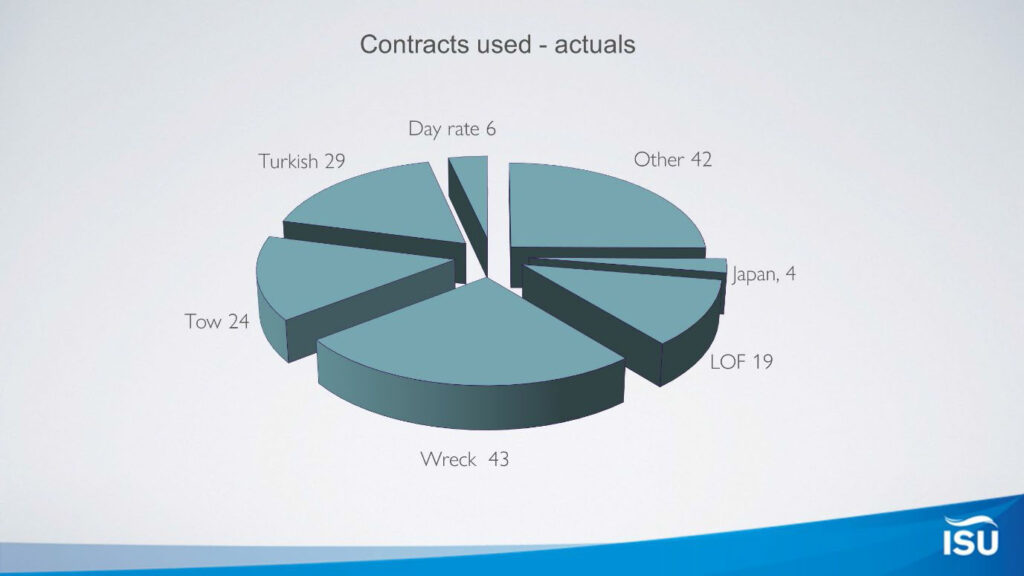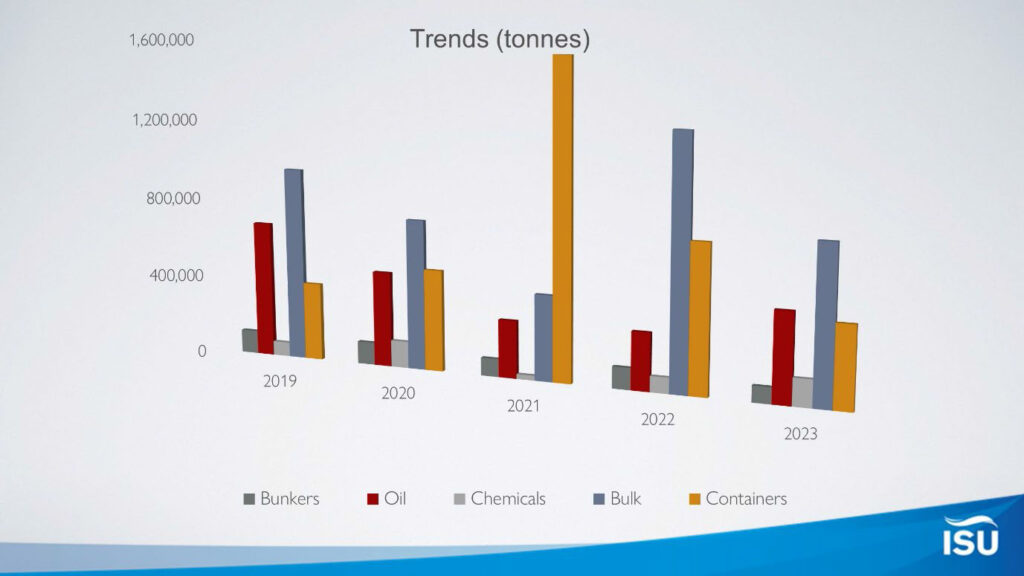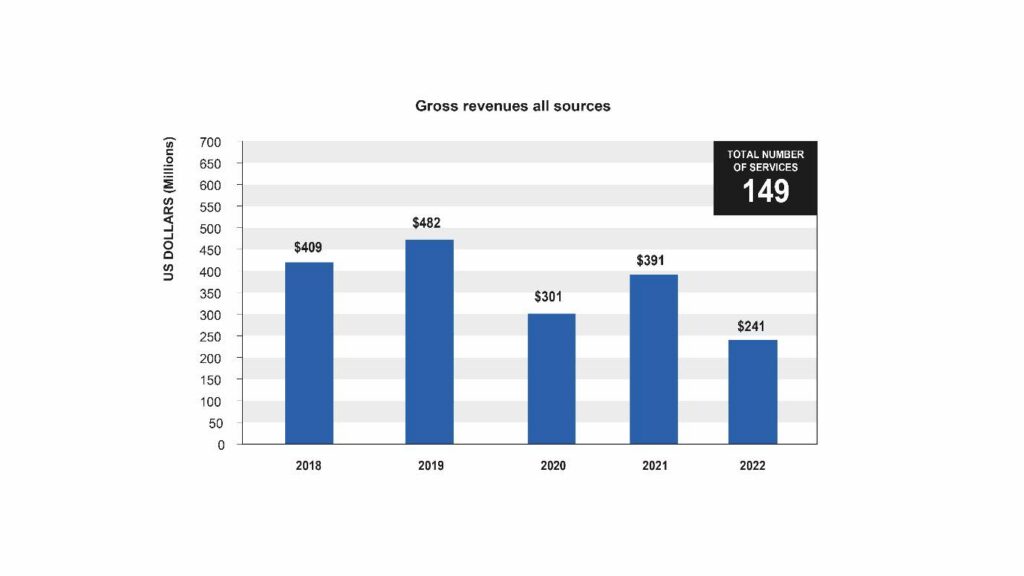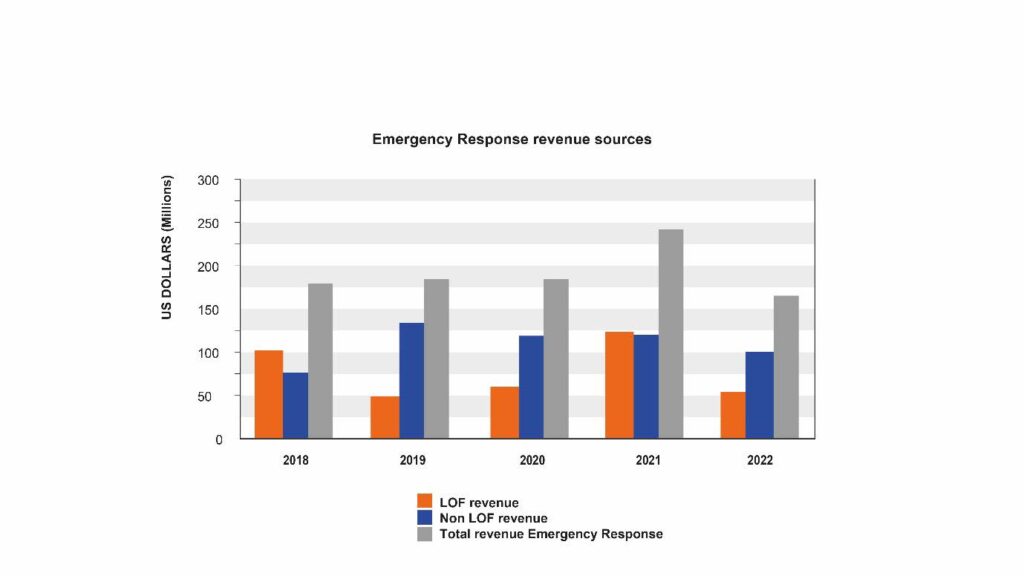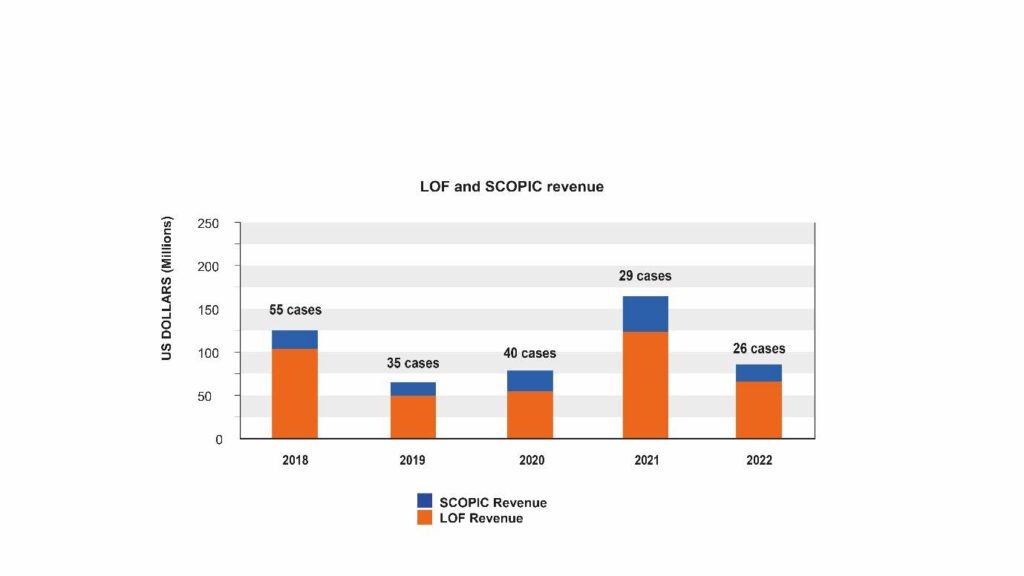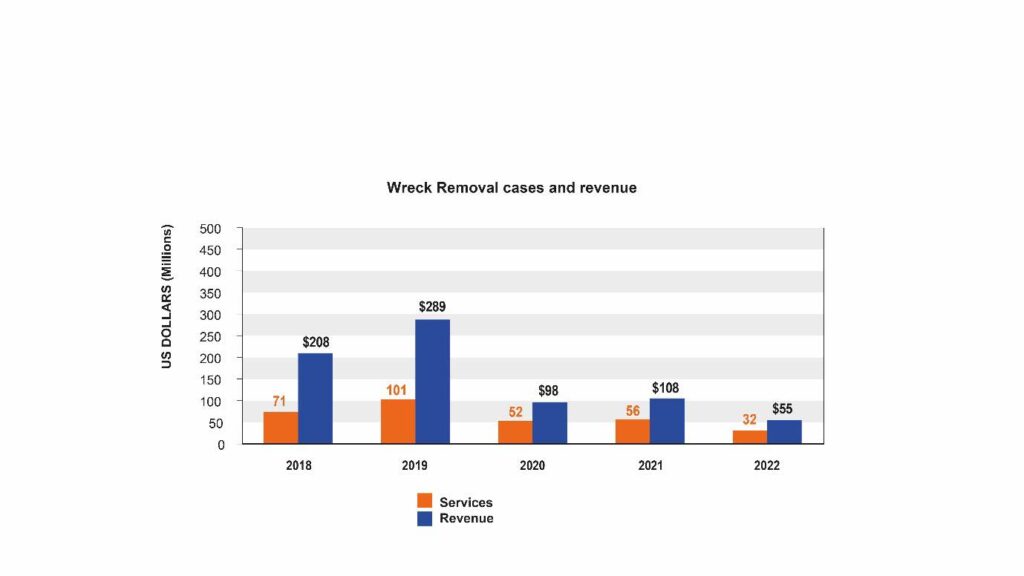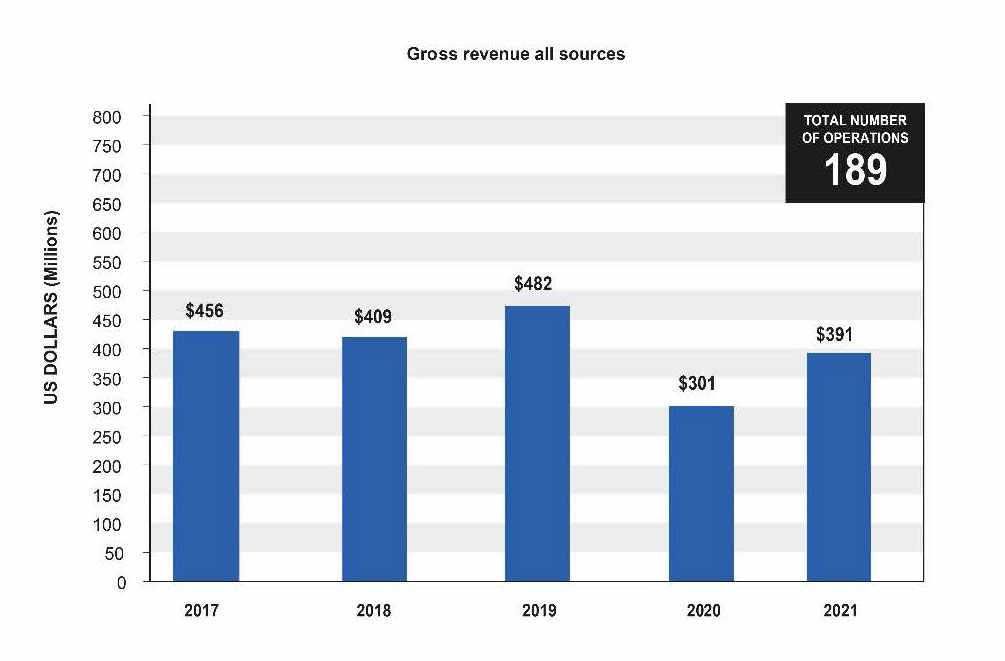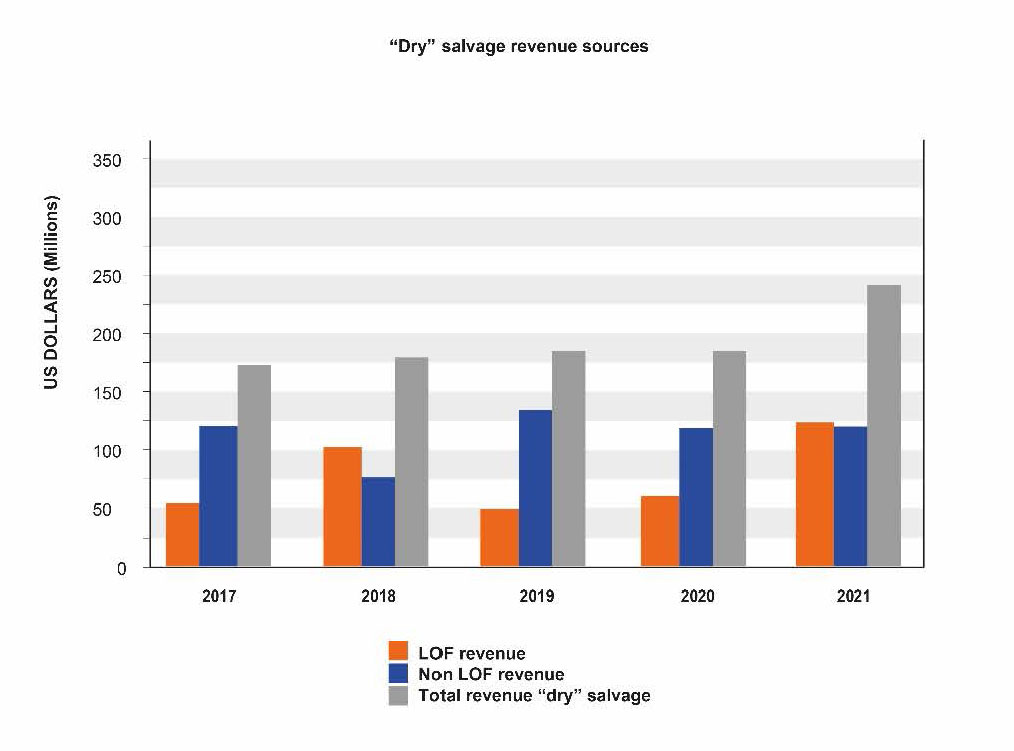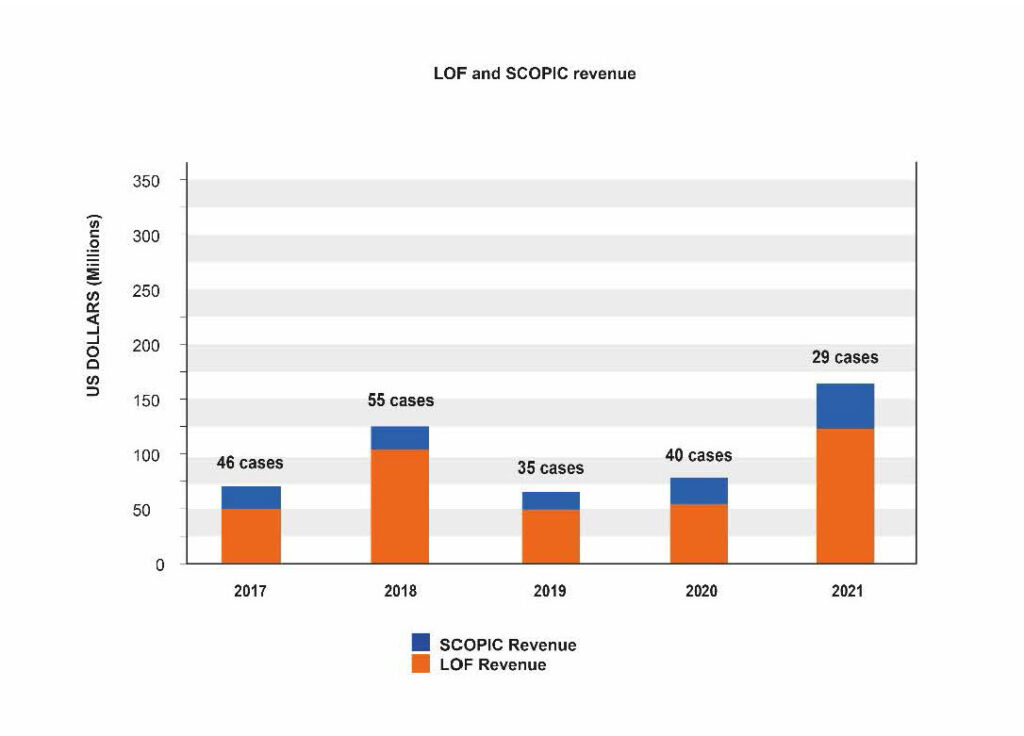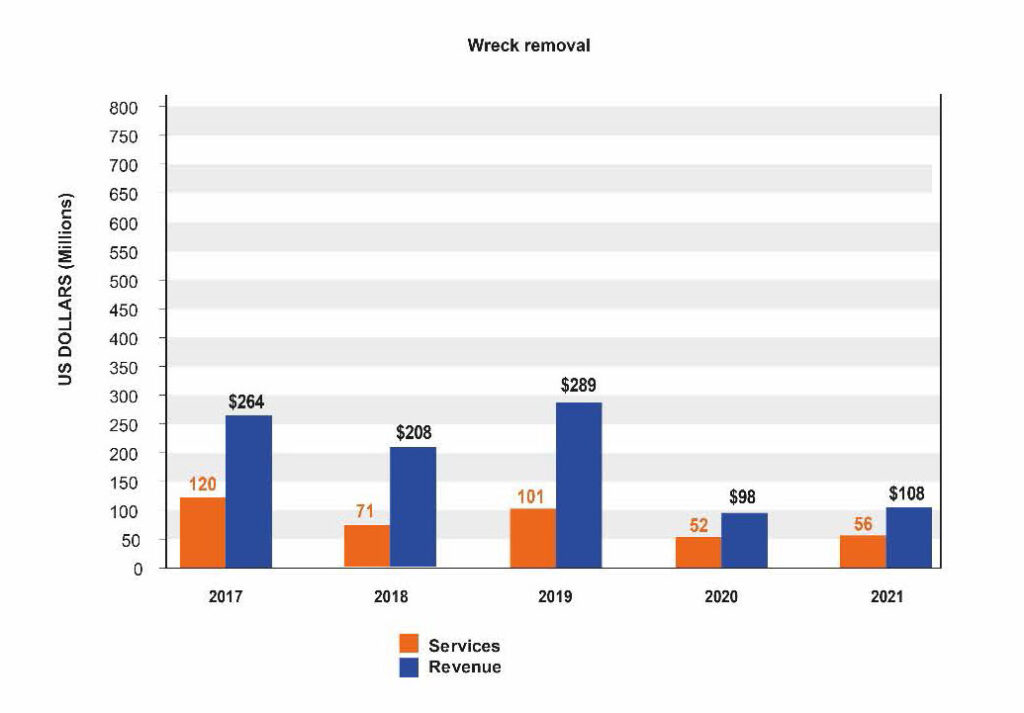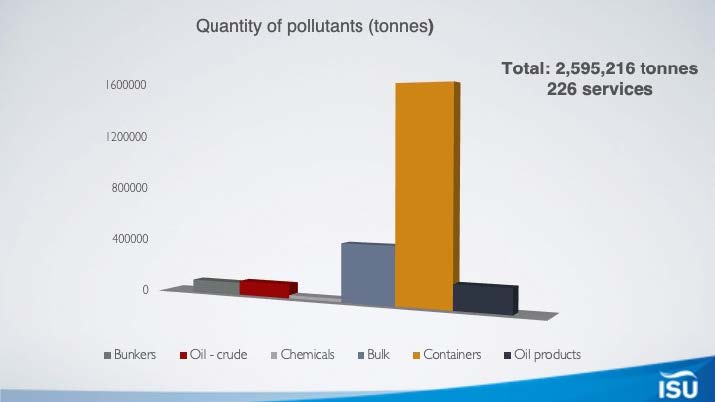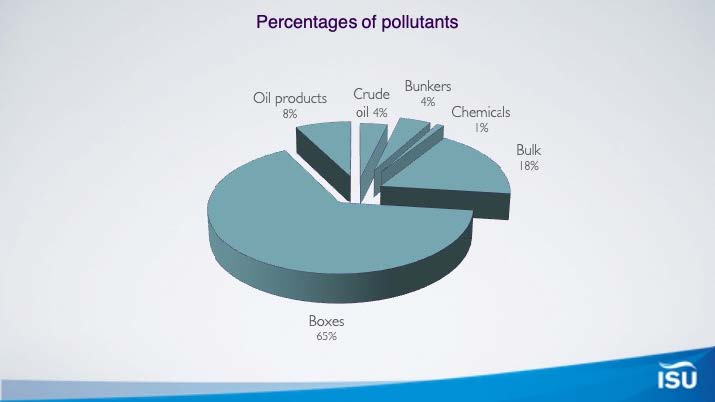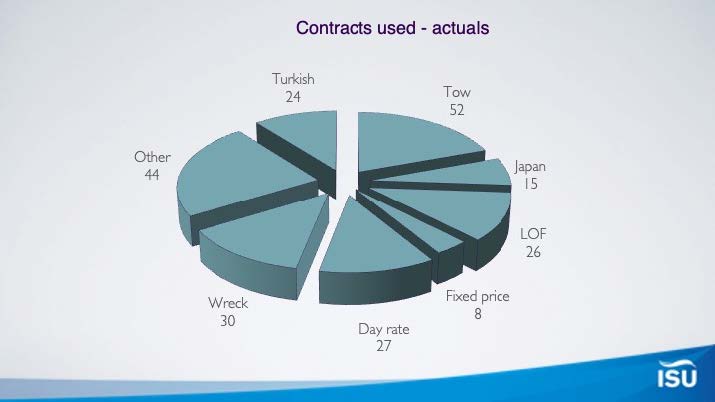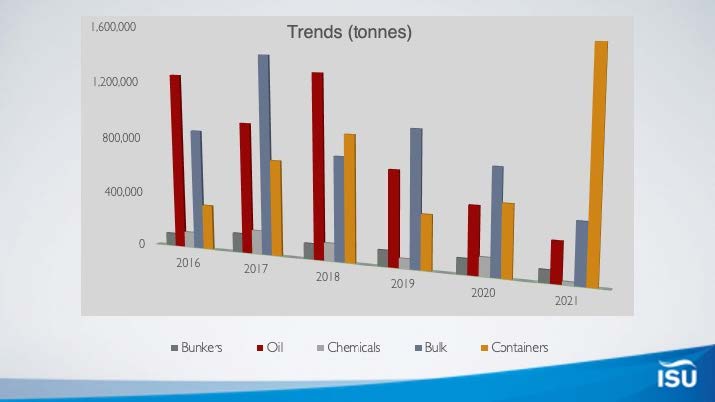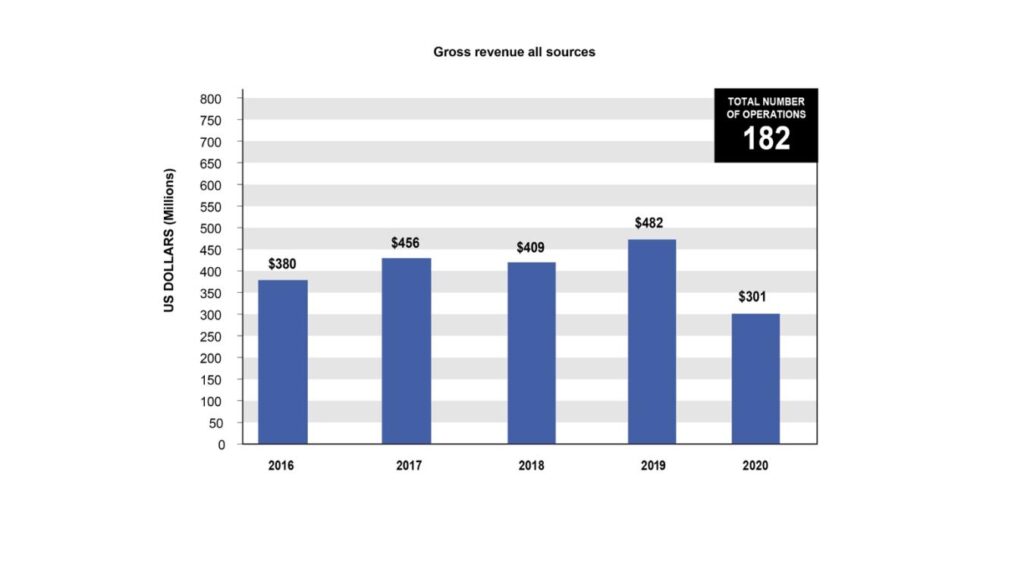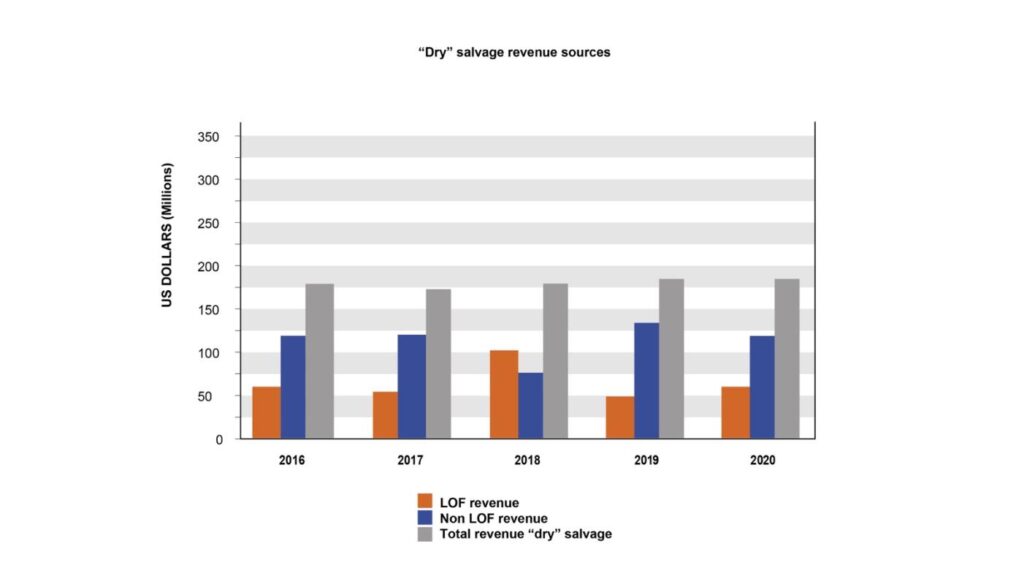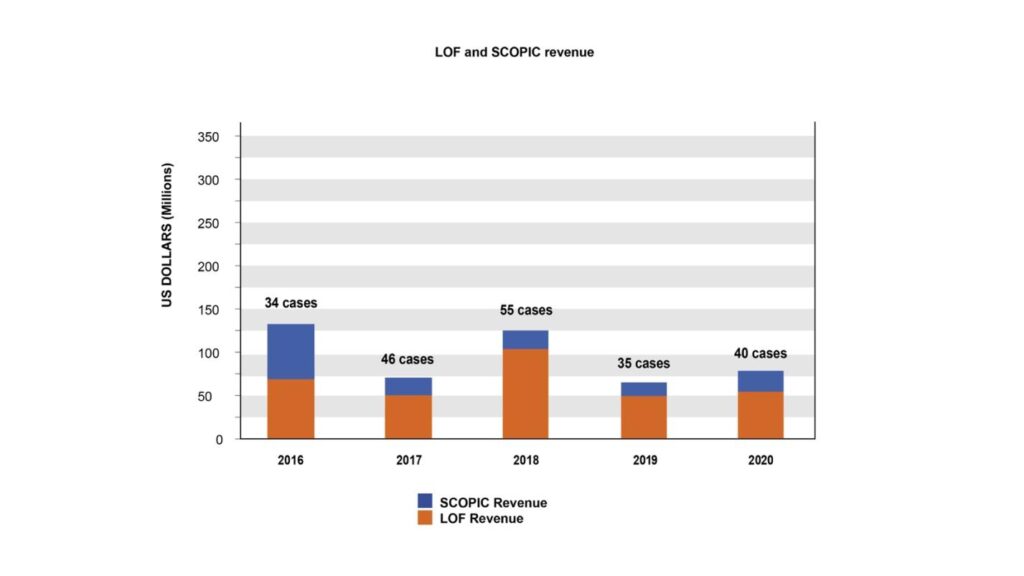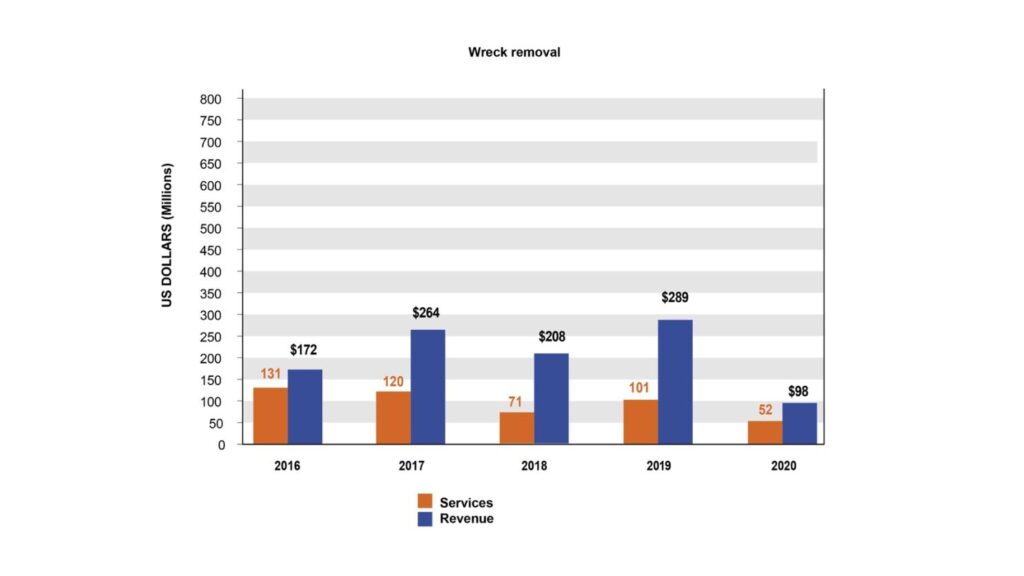Key figures:
• Gross revenue for ISU members – US$ 398 million (2022, US$ 241 million)
• 184 services provided (2022, 149 services)
• Lloyd’s Open Form (LOF) – 16 cases (2022, 26). LOF revenue down at US$29 million (2022, US$ 66 million)
• Wreck removal income – US$ 193 million from 30 services (2022, US$ 55 million from 32 services)
All numbers are gross income from which all the contractors’ costs must be paid. Numbers are for income in the year received not the year when the service was provided.
ISU President, John Witte, said: “The 2023 ISU statistics show a modest recovery compared with the historically low level in 2022. Emergency response services generated US$ 196 million split between LOF, US$ 29 million, and other contracts, $167 million.
“Wreck removal income has rallied rising to US$ 193 from the very low level of US$55 million in the previous year. Wreck removal income is important for our members and this is a welcome increase. It brings the split of the industry’s income back to the typical levels of approximately 50:50 between emergency response and wreck removal income.”
The 2023 ISU statistics show a historic low level of LOF cases – 16 for ISU members – generating income of US$ 29 million. This by some degree the smallest number of both LOF cases and income in the past 30 years.
Revenue from LOF cases amounted to 15 per cent of all emergency response revenue and LOF cases accounted for 10 per cent of emergency response cases in 2023. SCOPIC revenue at US$ 9 million in 2023 was down from US$ 21 million previously.
Mr Witte added: “The very small number of LOFs for our members in 2023 is extremely disappointing but sadly reflects a long-term downward trend that most observers are well aware of. ISU has worked closely with Lloyd’s and other stakeholders in the past three years to find ways to revive LOF. We promote its use and we believe that income based on awards under Article 13 of the Salvage Convention must remain the cornerstone of funding for our industry but this is increasingly difficult as these statistics so dramatically demonstrate.”
Revenue in 2023 from operations conducted under contracts other than LOF was US$ 167 million. The average revenue from each non-LOF contract was US$ 1.2 million.
Wreck removal is an important source of income for members of the ISU and in 2023 there was US$ 193 million from 30 operations.
Mr Witte added: “Professional salvors protect the environment, reduce risk and mitigate loss. They also keep trade moving – which is demonstrated so clearly when there are large containership cases like the Baltimore bridge incident earlier this year. We continue to work closely with key stakeholders to ensure that there is global provision of professional salvage services.”
The ISU statistics are collected from all ISU members by a professional third party, which aggregates and analyses them. The statistics do not include the revenues of non-ISU members but are the only formal measure of the state of the marine salvage industry. The statistics are for income received in the relevant year but that can include revenue relating to services provided in previous years and there can be an element of “time lag”. The statistics are for gross revenues from which all of the salvors’ costs must be met.




